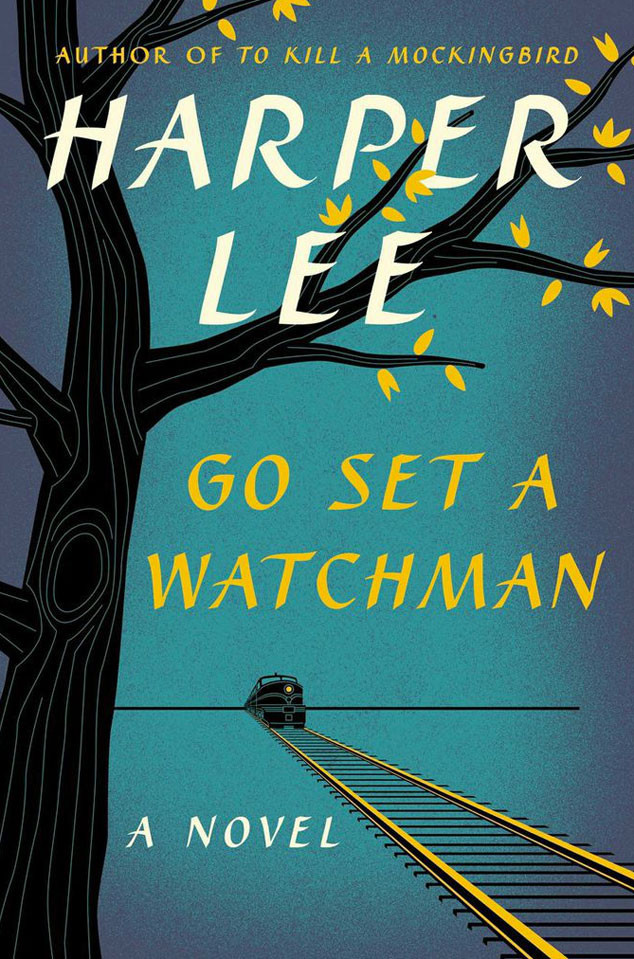Five stars for this novel that in spite of its being written before To Kill a Mockingbird, is its sequel. My research tells me that when Harper Lee submitted this her first book for publication, she was turned down and told to write a novel about a younger protagonist, thus Scout. This book, thought to be lost, was found and published in 2014.

Go Set a Watchman is set perhaps in the late 1950s. Jean Louise, now a twenty-six-year-old Scout, lives and works in New York City, and returns home every year to Maycomb County, Alabama, for a two-week vacation with her seventy-two-year-old father, Atticus Finch. Her brother Jem has been dead for four years. Her aunt Alexandra lives with her brother Atticus and takes care of him. In spite of the rheumatoid arthritis he suffers, he still practices law; and early in the novel he has agreed to defend a Black man so that he can get the best defense possible, the grandson of his former maid Calpurnia, the only mother Jean Louise knows, the woman who taught her everything she learned about growing up a lady.
But many years have come and gone, and the changing times that Jean Louise sees causes her to question her father’s behavior. It is a time when the South is experiencing problems with desegregation. Maycomb County is against being forced to integrate the races, believing that the rioting and killings in other areas of the South are caused by the NAACP and prefer to be in charge themselves. As in other cities, the men form a Council to keep the NAACP from controlling the Civil Rights movement, appointing Atticus as its leader in hopes of avoiding these problems.
Jean Louise becomes very angry with her father when he gives his reasons for agreeing to head the Council: the people aren’t ready; the NAACP has caused trouble in other Southern towns and cities. He defends states’ rights, guaranteed by the 10th Amendment, he says. Jean Louise interprets his membership as hatred of the Negroes, and she labels her father a bigot, which cancels out everything she grew up believing about him. He makes an argument for segregation, but she makes a better one for integration. She paints Atticus as a coward, a snob, and a tyrant. The language she uses with her father is quite strong, very unpopular, especially at this time, and may be one reason the publication of the book was denied. The politics of the day posed a greater reason, and publishing this book might have been perceived as taking sides, leading to further problems; for Jean Louise is clearly the voice of the author. And just as Harriet Beecher Stowe’s Uncle Tom’s Cabin is said to have been the catalyst for the Civil War, I believe that the publishers might have feared Harper Lee’s book would have been viewed as supporting the Civil Rights movement.
When Jean Louise gets so upset with her father and the young women her age who attend the Coffee her aunt yearly hosts for her when she comes home, she turns to her uncle on whom she can always count for the truth.
buy zithromax generic https://rxbuywithoutprescriptiononline.net/zithromax.html over the counter
In response to her anger at how hateful and bigoted the white people of her beloved Maycomb County seem to have become, her uncle—an intellectual and a former medical doctor—quotes the Bible to her: For thus hath the Lord said unto me, Go, set a watchman, let him declare what he seeth.—Isaiah 21:6 KJV (Isaiah 21 is a prophecy to Judah that severe judgment is coming.
buy zovirax generic https://rxbuywithoutprescriptiononline.net/zovirax.html over the counter
) He convinces Jean Louise that her beloved Maycomb needs her and her views; and realizing the truth of his argument and thinking, yes, she may be of help to her hometown and all of its people, she agrees to finish out her two-week vacation and then prepare to leave New York and return home to Maycomb County, Alabama.
Read more book reviews like this in AGENDA Special Edition 2 “La Mode 2016”





Pingback: GO SET A WATCHMAN by Harper Lee: E-book Evaluation – USA Trendings
Pingback: GO SET A WATCHMAN by Harper Lee: Book Review | GetUsaNews
Pingback: GO SET A WATCHMAN by Harper Lee: E-book Evaluate | Read It
Pingback: GO SET A WATCHMAN by Harper Lee: Guide Evaluation | Check it